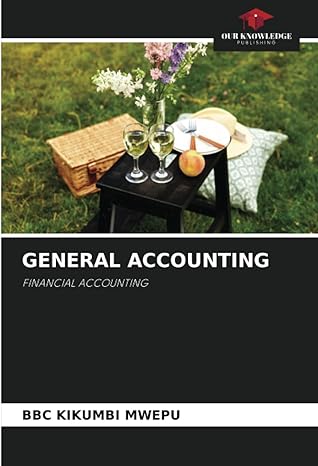Question
Step 1: Introduction to Fraud Detection and Prevention in Auditing Fraud detection and prevention are critical components of the auditing process. Auditors play a pivotal
Step 1: Introduction to Fraud Detection and Prevention in Auditing
Fraud detection and prevention are critical components of the auditing process. Auditors play a pivotal role in safeguarding the integrity of financial information by actively seeking out signs of fraudulent activities. Fraudulent schemes can manifest in various forms, including financial statement manipulation, embezzlement, and misappropriation of assets. Therefore, auditors need to employ robust strategies to both detect and prevent fraud within organizations.
Step 2: Fraud Risk Assessment
The first step in combating fraud is conducting a thorough fraud risk assessment. Auditors analyze the organization's internal controls, identify potential vulnerabilities, and assess the risk of fraud occurring. This involves understanding the company's industry, internal processes, and historical incidents of fraud. By identifying potential risk factors, auditors can tailor their audit procedures to focus on areas with higher susceptibility to fraud.
Step 3: Implementing Analytical Procedures
To detect irregularities that may indicate fraudulent activities, auditors utilize analytical procedures. These procedures involve the analysis of financial data and ratios to identify anomalies or trends that deviate from the norm. For instance, sudden spikes in revenue without corresponding increases in business activities might raise red flags. By leveraging data analytics, auditors can enhance their ability to uncover potential fraud schemes.
Step 4: Strengthening Internal Controls
Preventing fraud is equally important as detecting it. Auditors work closely with organizations to strengthen internal controls and establish a robust anti-fraud environment. This may involve recommending improvements in segregation of duties, implementing regular employee training programs, and establishing a whistle-blower hotline. Strengthening internal controls not only deters fraudulent activities but also ensures a more transparent and accountable organizational structure.
Fill in the Blanks Type Question:
In combating fraud, auditors conduct a thorough ___________ to identify potential vulnerabilities and assess the risk of fraud occurring within an organization. This involves understanding the company's industry, internal processes, and historical incidents of fraud. By identifying potential risk factors, auditors can tailor their audit procedures to focus on areas with higher susceptibility to fraud.
Fraud Risk Assessment
Financial Statement Analysis
Internal Control Evaluation
Budgetary Review
Step by Step Solution
There are 3 Steps involved in it
Step: 1

Get Instant Access to Expert-Tailored Solutions
See step-by-step solutions with expert insights and AI powered tools for academic success
Step: 2

Step: 3

Ace Your Homework with AI
Get the answers you need in no time with our AI-driven, step-by-step assistance
Get Started


